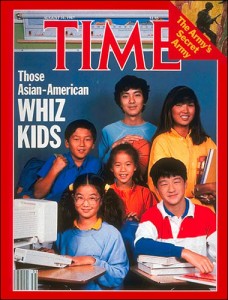The term Historically Black Colleges and Universities refers to a group of 105 U.S. colleges and universities founded with the primary mission of educating people of African descent.
In the Higher Education Act of 1965, the federal government formally recognized 105 colleges as Historically Black Colleges and Universities (HBCUs). To qualify for this designation, institutions had to fit the following criteria. Each school had to have been:
- Accredited by a national or nationally recognized regional accrediting agency.
- Founded before 1964.
- Founded for the purpose of educating black students.
Colleges that have been recognized as HBCUs under the Higher Education Act are eligible for federally-subsidized grants and other forms of funding. These moneys have been set aside specifically to insure equitable funding for U.S. colleges and universities, regardless of the ethnic makeup of population served. HBCUs may be public or private, 4-year, 2-year, graduate or undergraduate institutions.
For most of the history of the United States, HBCUs were the only option available for African Americans seeking a college education. Until the late 1960s, most institutions of higher learning were closed to black students. The earliest HBCUs were founded during the slavery era or antebellum period, but in northern, “free” states. The oldest, Cheyney University, was founded in 1836, in Pennsylania. In addition to Cheyney, two other HBCUs were also founded during the antebellum period. They are Lincoln University (1854), also located in Pennsylvania, and Wilberforce University (1856), located in Ohio.
After the 13th Amendment to the Constitution ended slavery in the U.S., a number of HBCUs were created throughout the South, in order to educate newly-freed black people. Almost one fourth of the nation’s HBCUs were founded during the period of Reconstruction (1865 – 1877), including several of the nation’s most widely known, including:
- Howard University (1867)
- Morehouse College (1867)
- Fisk University (1866)
- Hampton University (1868)
- Alcorn State University (1870)
- Meharry Medical College (1876)
- Prairie View A&M University (1877)
By 1932, there were more than 100 HBCUs, located in 20 states, the District of Columbia, and the U.S. Virgin Islands.
Who Can Attend an HBCU?
Historically Black Colleges and Universities are open to students of all races and ethnicities. Although few non-black students attended HBCUs before desegregation, the last three decades have seen the enrollment of increasing numbers of white, Asian American, and Latin American students on many historically black college campuses. It is estimated that white students comprise roughly 17% of all students enrolled at HBCUs today. A small number of the original HBCUs, like West Virginia State University and Lincoln University of Missouri, are now majority white. HBCUs also continue to enroll significant numbers of international students.
HBCUs Today
Today, the overwhelming majority of black students (roughly 84%) attend majority white universities. While HBCUs constitute only 3% of U.S. colleges and universities and enroll only 16% of all black undergraduates, however, they graduate nearly a quarter of all black bachelor’s degree holders. HBCUs also achieve disproportionate success in these areas:
- HBCUs graduate more than half of all black professionals in the U.S.
- HBCUs graduate more than 50% of all black men and women who go on to become public school teachers.
- HBCUs graduate more than 70% of all black men and women who go on to become dentists.
- Of the ten colleges and universities whose black graduates are most likely to go on to earn a Ph.D., nine are HBCUs.
- Just two historically black women’s colleges, Bennett College and Spelman College, graduate more than half of all African American woman who go on to earn Ph.D.s in the sciences.
While the federal government continues to limit the HBCU designation to U.S. colleges and universities founded before 1964, there currently exist a number of majority black institutions that do not fall under that heading, either because they were founded after 1964 or because they did not become what the federal government calls “predominantly black” until after that time. Many of these institutions are public colleges and universities located in northern U.S. cities with substantial black populations. The following is just a brief sampling of the roughly 75 institutions that qualify as predominantly (but not historically) black:
- Chicago State University
- City University of New York – Medgar Evers College
- Sojourner Douglas College, Baltimore, MD
- Atlanta Metropolitan College
- Charles R. Drew University of Medicine and Sciences (Los Angeles)
Recent legislation has been proposed to create a specific funding category for these colleges and universities as well as their counterparts that serve the Native American, Latin American, and Asian American communities.
Posted by Ajuan Mance








